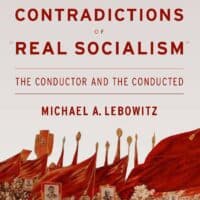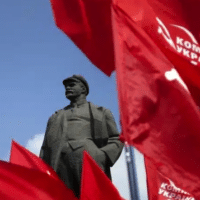-
NYC’s $13 million settlement with BLM protesters “not a victory, but something to hold onto’
An interview with longtime activist Savitri Durkee who was a plaintiff in the record-setting class-action lawsuit.
-
The true cost of Julian Assange’s persecution: An exclusive interview with Stella Assange
It is now four years since Julian Assange was imprisoned in Belmarsh’s high-security prison in London and eleven since he was forced into hiding in the Ecuadorean Embassy in the same city. But even before then, the Australian publisher and WikiLeaks co-founder has been under relentless attack from powerful bodies his organization exposed.
-
The evolution of a solution
After 20 plus years of educating and organizing throughout the Alabama prison system, one of the most frequently asked questions I get is, “What is a work stoppage like?” Well, it’s surreal, it’s really hard to put into words and I don’t want to be cliche about it, but I’ll do my best.
-
The war in Ukraine is the war for the dollar
Oleg Nesterenko: “Moscow has really threatened the status of the American dollar on the international stage, and therefore the whole American economy behind it.”
-
Without the 2014 coup, Ukraine would be living in peace
Oleg Nesterenko: “When we talk about the reasons that led the Russians to intervene militarily in Ukraine, root causes and triggers are often confused, especially in the Western press. The triggers are mistaken for the causes. As for the causes, we don’t even talk about them, or we just talk nonsense. It’s important to distinguish one from the other.”
-
Healing the wounds of War in Vietnam
From 1964 to 1973, the United States released 6,162,000 tons of bombs and other ordnance in Indochina, far greater than the combined amount during the Second World War and the Korean War.
-
Debtors of the world, unite!
Jayati Ghosh speaks about the growing debt crisis in the global south, the IMF’s never-ending affinity for austerity and the need to confront the power of financial capital.
-
Chávez, UNASUR and the end of unipolarity: A conversation with Judith Valencia
The Venezuelan researcher offers her reflections on Chávez’s geopolitics and the reactivation of the Union of South American Nations.
-
Background and elements of the war in Ukraine
“This crisis shows us the weakness of our society”
-
An Interview with Benjamin Abelow, M.D., author of ‘How the West Brought War to Ukraine’
The following is a revised and expanded version of an interview with Benjamin Abelow, author of ‘How the West Brought War to Ukraine: Understanding How U.S. and NATO Policies Led to Crisis, War, and the Risk of Nuclear Catastrophe’, originally published in Italian translation by the Italian news and commentary site, QuotidianoWeb.
-
Professor Kees van der Pijl: “NATO and the EU will dissolve!”
How can we organise a global resistance to the criminal capitalist system and the devastating imperialism that has ravaged entire countries?
-
‘Charging domestic terrorism is intended to make the cost of protesting too high’
CounterSpin interview with Cody Bloomfield on anti-activist terrorist charges.
-
‘The court’s position is, no one can tell them what to do’
CounterSpin interview with Ian Millhiser on Supreme Court corruption
-
Ukraine’s big mistake
Renfrey Clarke is an Australian journalist. Throughout the 1990s he reported from Moscow for Green Left Weekly of Sydney. This past year, he published The Catastrophe of Ukrainian Capitalism: How Privatisation Dispossessed & Impoverished the Ukrainian People with Resistance Books.
-
Resisting AFRICOM and beyond
An Interview with Rose Brewer of Black Alliance for Peace.
-
An Interview with Michael A. Lebowitz on ‘Capital’, “Real Socialism,” and Venezuela
“While socialists need to begin with the existing concepts of fairness as reflected in the moral economy of the working class, to the extent that those concepts of fairness are contrary to the principle advanced in the Communist Manifesto that ‘the free development of each is the condition for the free development of all,’ they must be rejected.” —Michael Lebowitz
-
ChatGPT and human intelligence: Noam Chomsky responds to critics
‘The threat to privacy and data security posed by language models like ChatGPT is real enough. I frankly doubt that there’s any practical way to contain them. The most effective means that I can think of…to counter the spread of malicious doctrines and ideology are education in critical thinking, organization to encourage deliberation, and modes of intellectual self-defense.’ —Noam Chomsky
-
A brutal system replaced socialist health care in Europe
Matthew Read, researcher at the IF DDR, talks to the People’s Health Dispatch about similarities between East Germany’s and Yugoslavia’s socialist health systems and the lessons to be learned from these systems.
-
Successive Governments in Ukraine have accommodated Nazis to counter Soviet nostalgia: Ukrainian Communist Dmitri Kovalevich (Interview)
Dmitri Kovalevich described a range of issues to Orinoco Tribune, including the 2014 coup, Ukrainian President Zelensky’s rise to fame, war crimes and human rights violations in Ukraine, the economic collapse of the country, and many others.
-
‘The U.S. incarcerates more immigrants than anywhere else in the World’
CounterSpin interview with Silky Shah on detention center fire.

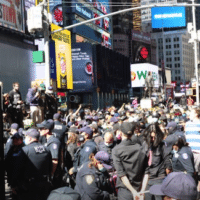

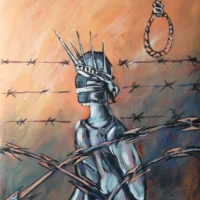

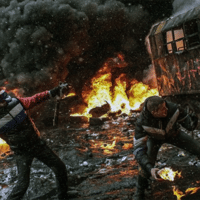
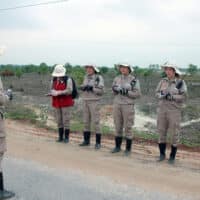
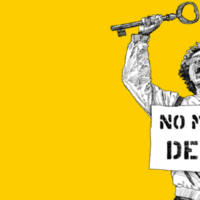
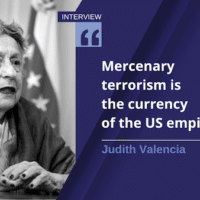


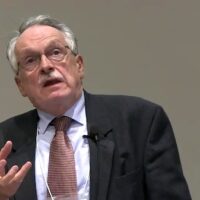


![[Source: cnn.com]](https://mronline.org/wp-content/uploads/2023/05/Screenshot-2023-05-11-at-64550-AM-200x200.png)

